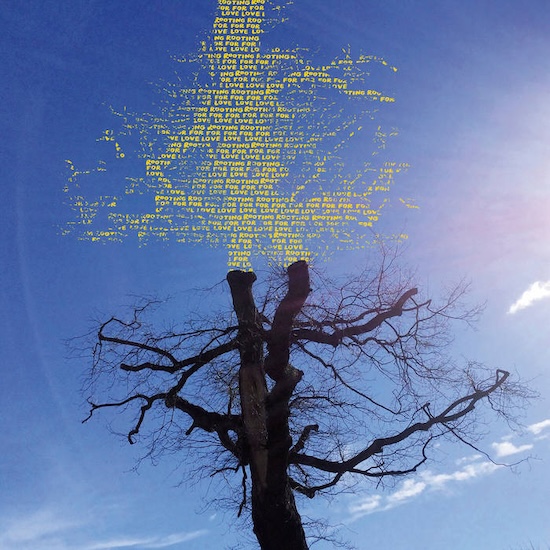The post-hauntological psychedelic renaissance of late (see Vanishing Twin, Co-Pilot and The Soundcarriers to name a few) can be attributed to not just the wealth of information via the internet exposing us to all kinds of sounds from the past, but a new age radicalism that changes the musician’s narrative from self-destruction to self-preservation. On the basis of a growing interest in Mark Fisher’s acid communist beliefs, there also seems to be an emotional excavation of the self taking place in the arts, or at least a cognisance that for the world to truly change, we need to dig deep into our subconscious through self-nurturing and compassion.
On Rooting For Love, her first solo album since 2017, Stereolab’s Laetitia Sadier explores ways of healing humanity inspired by her Zen Shiatsu training and the words of The Honeymoon Killers’ Véronique Vincent. The message is clear: methods of self improvement and engaging in art and culture are the only way we can go deep within to let the garbage out. In other words, self care doesn’t have to have narcissistic or hippy-dippy connotations, it can be radical -– especially in a world where the ideologies of capitalism are built on self hatred. And if done collectively, it could even change the world.
This is familiar territory for fans of Stereolab and Laetitia Sadier’s respective solo projects. Rooting For Love is unsurprisingly sophisticated in its socio-politics. Imagine a French intelligentsia cocktail party where conversation topics range from Eastern philosophies and psychoactive countercultures to imagining new futures from both inner and outer-space.
Rooting For Love acknowledges civilisational trauma, the heat of a turbulent world and collapsing institutions, but doesn’t allow its spectre to negate the human instinct of hope. Unlike the indignation typified by most political music, it’s not cynical or condemning, but a gentle rallying cry.
Opener ‘Who + What’ calls for a collective striving for gnosis, an outlook that allows us to evolve away from millennia of alienation and suffering and towards the achievability of healing. Through the use of organ, synth, guitar, bass, trombone, drum programming, vibraphone, zither and a vocal assembly of men and women billed as ‘The Choir’, Sadier inhabits a unique world of her own, a deeply empathetic one that experiments with disparate textures and dreamscapes. The album’s intermittent freak-outs juxtapose the exotica-hued lounge elements with aplomb. ‘The Inner Smile’ is a case in point, with its startling flute and slow descent into a kind of controlled instrumental tumult not unlike the spiritual jazz of Alice Coltrane.
An antidote to the corporate pop that forces us to be joyful, Rooting For Love offers a genuine alternative without being militant or hideously self aware. Observing the current crop of electronic and avant pop groups indebted to Stereolab’s cosmic futurism, there’s a noticeable distinction between the sepia-tinged malaise that radiates from ‘90s post-rock and psych-pop, and the vibrant optimism of post-hauntology’s sonic colour palette, in the same way Can’s transcendental Future Days resists the grey gloom of Germany’s postwar angst with splashes of technicolour. It’s the sound of disorientation and inner peace realised as one and the same.



